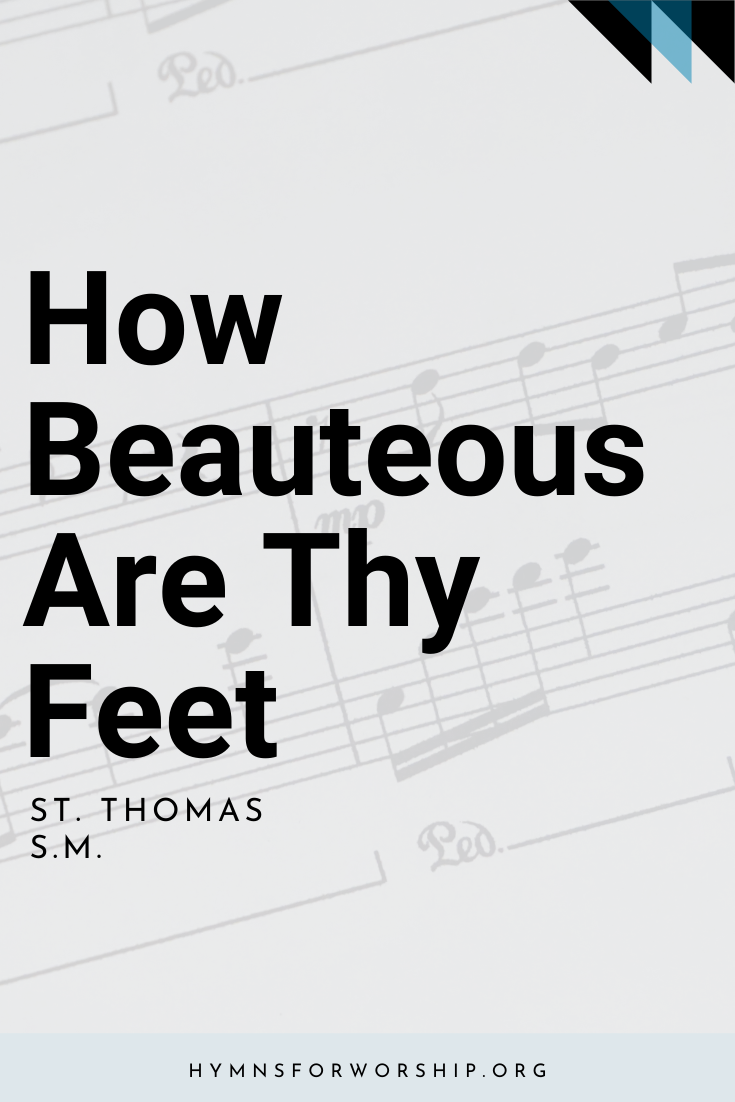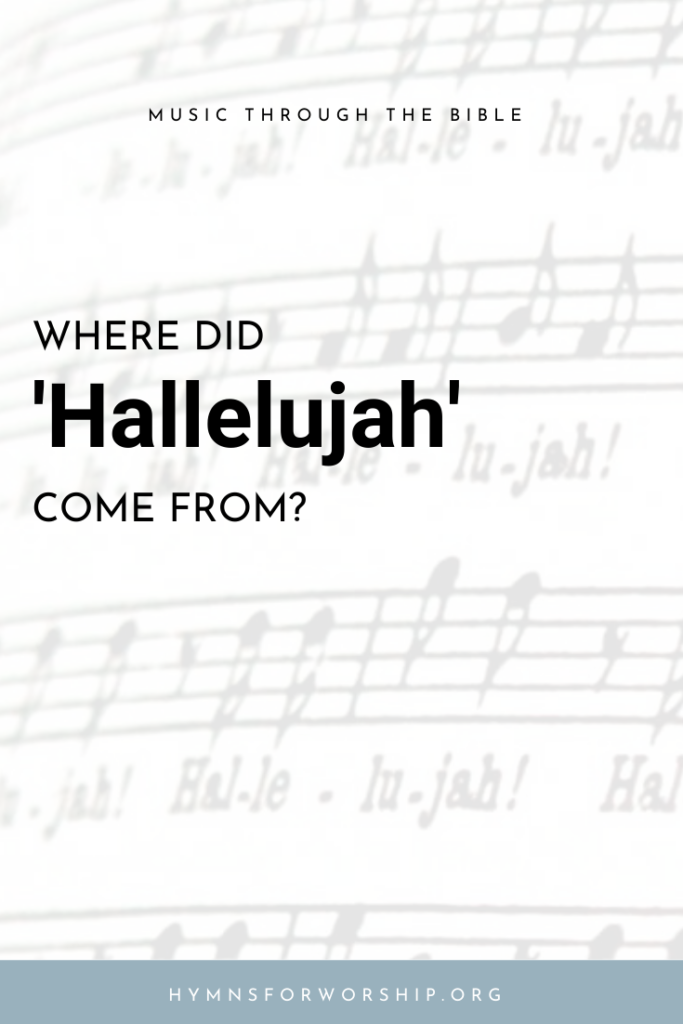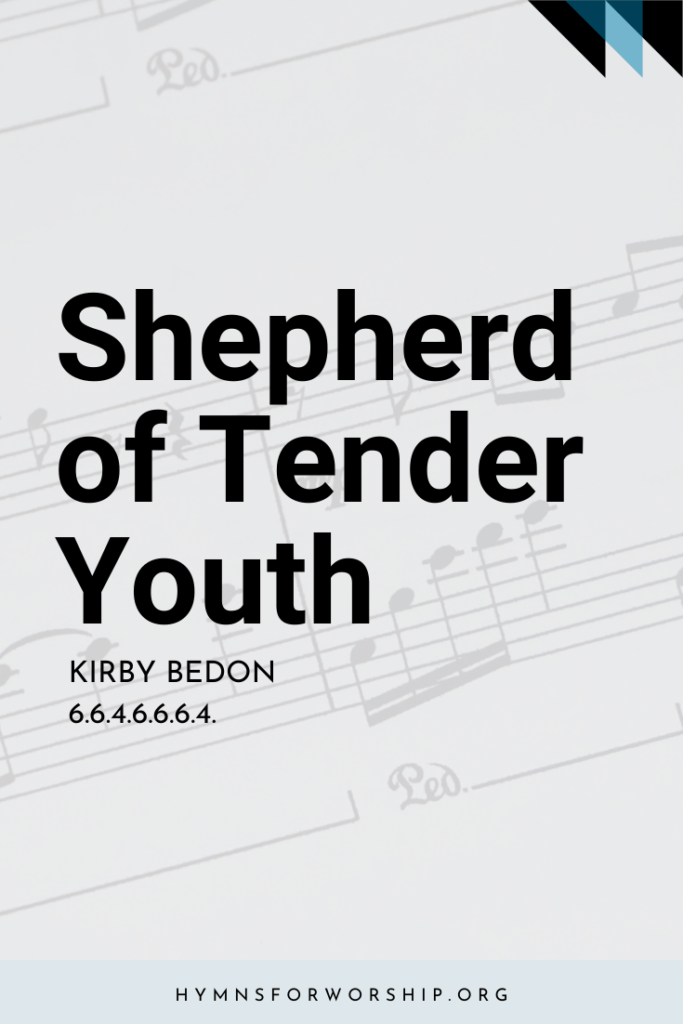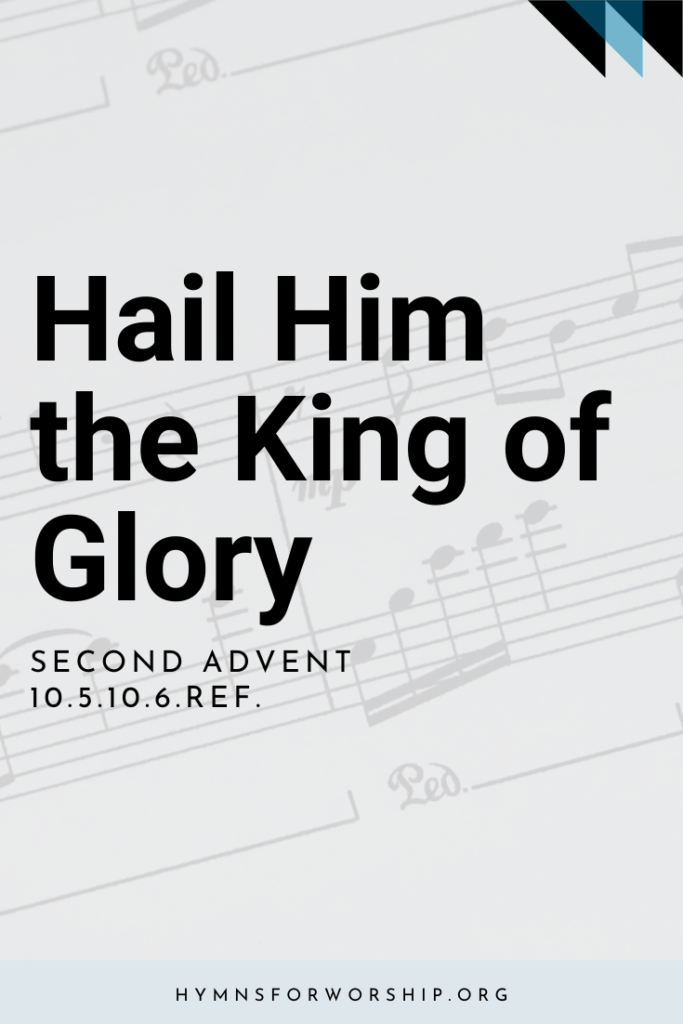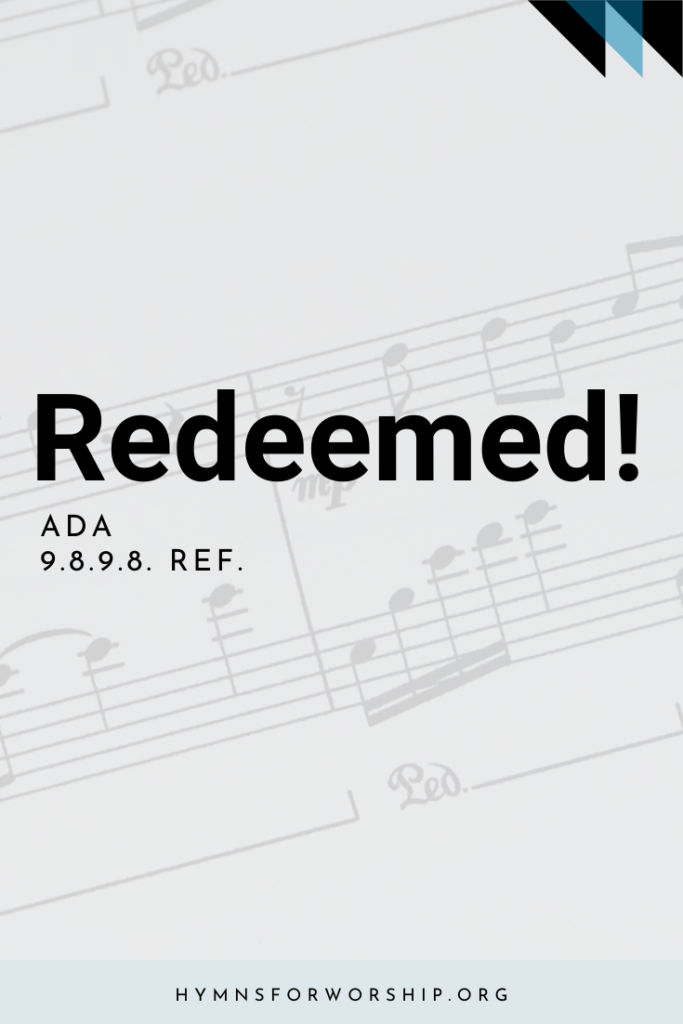CHRISTIAN CHURCH >> Mission of the church
SDAH 372
How beauteous are their feet
Who stand on Zion’s hill;
Who bring salvation on their tongues,
And words of peace reveal!
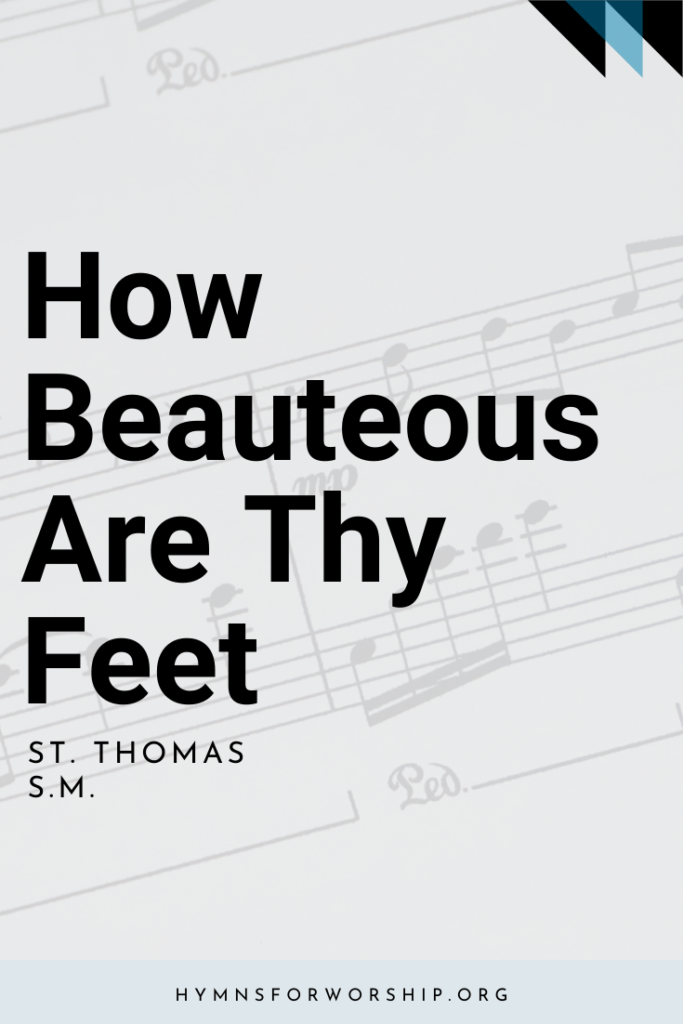

Text
1
How beauteous are their feet
Who stand on Zion’s hill;
Who bring salvation on their tongues,
And words of peace reveal!
2
How charming is their voice,
So sweet the tidings are:
“Zion, behold thy Savior King;
He reigns and triumphs here!”
3
How happy are our ears,
That hear the joyful sound
Which kings and prophets waited for,
And sought, but never found!
4
How blessed are our eyes,
That see this heavenly light;
Prophets and kings desired it long,
But died without the sight!
5
The watchmen join their voice,
And tuneful notes employ;
Jerusalem breaks forth in songs,
And deserts learn the joy.

Hymn Info
Biblical Reference
(a) Isa 52:7 (b) Isa 52:7 (c) Matt 13:16, 17 (d) Matt 13:16, 17 (e) Isa 52:8, 9
Author
Isaac Watts (1674-1748)
Year Published
1707
Hymn Tune
ST. THOMAS
Metrical Number
S.M.
Tune Source
from Williams’ Psalmody, 1770
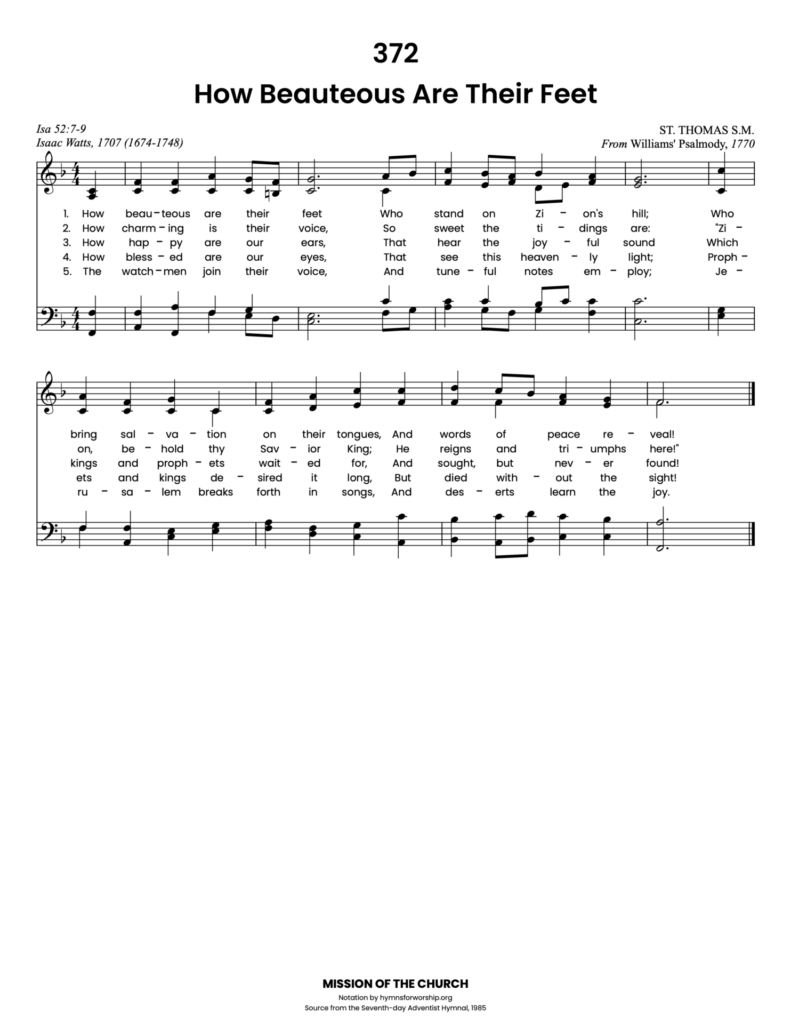
Get the hymn sheet in other keys here
Notes
Make each hymn more meaningful with these helpful tools: Short, ready-to-use hymn introductions for church bulletins, multiple ways to introduce a hymn based on your worship theme and in-depth history and insights to enrich your song service.

